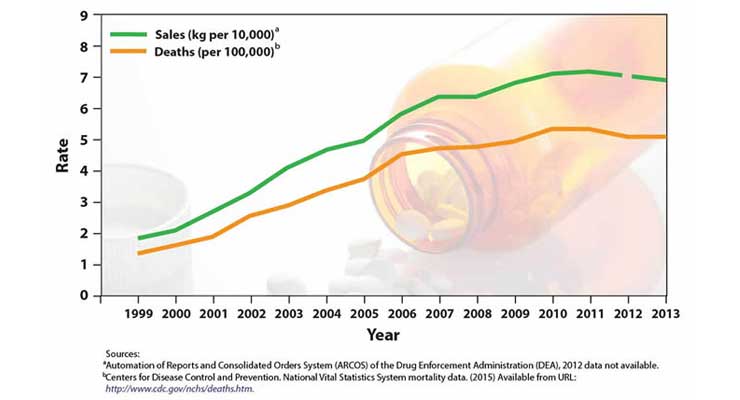
This fall, I had the opportunity to work for Representative David Vieira. Vieira (R- Falmouth), State Representative Carole Fiola (D- Fall River), Former Massachusetts Public Health Commissioner Cheryl Bartlett, Former Massachusetts Education Commissioner Robert Antonucci, and Chris Herren (Founder of The Herren Project). Together, these activists were working on submitting a Policy Memo to Massachusetts Governor Charlie Baker, Secretary of Education Jim Peyser, and DESE Commissioner Mitchell Chester. This project was important on a personal level.
Growing up, the majority of my memories either come on the beaches of Cape Cod, or at family member’s homes on the Cape. 85 percent of all crimes committed on the Cape are opioid-related. In 2014, Massachusetts suffered more than 1,250 deaths from heroin overdoses. Cape Cod has forever been “home” for me, which is the reason for my first hand interest in this project. Along with degraded conditions in the environment, it is Cape Cod’s biggest problem. Direct concern aside, it is one of America’s biggest complications.
 Massachusetts has a growing epidemic in the commonwealth: the abuse of Opioids. It is one of the leading causes of death among the residents. It is an extremely critical issue threat to the Public Health. Opioids reduce the intensity of pain signals reaching the brain.
Massachusetts has a growing epidemic in the commonwealth: the abuse of Opioids. It is one of the leading causes of death among the residents. It is an extremely critical issue threat to the Public Health. Opioids reduce the intensity of pain signals reaching the brain.
The most commonly used pain killers are Opioids, such as Vicodin, Percocet, Codeine, OxyCotin, and Morphine. A single large dose can cause severe respiratory depression and death. The commonwealth of Massachusetts has not fully reviewed the Massachusetts Comprehensive Health Curriculum Framework since its inception in 1999. The legislature needs to add reforms and overhaul the state’s framework.
Subsidize in Prevention and Treatment
When reviewing the Massachusetts Opioid Abuse Prevention Collaborative, prevention strategies are listed but there is no policy that is requisite for the MD’s. While they do know their patients best, there needs to be a maximum amount of pills that can be prescribed. Limiting the prescriptions for patients not only limits the risk of addiction, but it eliminates the adjunct pills that can either be sold on the black market or distributed amongst friends or colleagues.
The Massachusetts Medical Society (MMS) has urged limiting the first Opioid prescription to patients. While they differ on the time table, they agree this is something that is certainly something that needs to be augmented into the framework. The bill currently has a 3 day limit already formulated, but the MMS recommends a 7 day limit. It would be easiest to meet in the middle with the MD’s and place a 5 day limit on first prescriptions.
Dr. Peter Smulowitz of Beth Israel Deaconess Hospital in Plymouth agrees, and has advocated for this new infrastructure. To decrease addiction throughout the commonwealth, new policies placing limitations must be place in the state’s health curriculum.
Generate a Protocol for Addicts
After spending several hours on the Massachusetts Health and Human Services Department website, I was surprised that there was no set protocol on how to handle an addict, or even how doctors should handle their prescribing of Opioids. There needs to be a written protocol for Medical Centers to follow in their treatment for addicts. After the detoxification, I recommend immediate therapy. This would be the most vital component at the protocol because it eliminates the possibility of a relapse.
Therapeutic protocol should have a broad range of options, from cognitive to contingency, motivational to behavioral, and of course, family. Treatments and therapy must be tailored to the patient’s needs, which is why the protocol would be so extensive. Medications do not need to be reformed, as there are already approved methods by the US Food and Drug Administration (FDA). Hospitals also need the power to be able to keep an addict in treatment, even if that means keeping them against their wishes. Studies show that in order to adequately pass the need for a fix or to finish withdrawals that there needs to be at least a three day detainment period. Unfortunately, hospitals currently do not have this power.
Increased Screening Among Students for Potential Substance Abuse
The vast majority of overdose related deaths come from the adolescent stage to early adulthood. High Schools and Colleges in Massachusetts currently do not have an effective procedure for screening. If the framework is updated, it is essential that a screening procedure is added to ameliorate the substance abuse problems in its main demographic.
Without new procedures, substance abuse will go unchecked. While basic security checks should be put in place, another new method I recommend being put in place is the CRAFFT substance abuse screening test. The test compares the score on the 6-item CRAFFT test with screening categories determined by a concurrently administered substance-use problem scale and a structured psychiatric diagnostic interview. Screening categories were “any problem” (ie, problem use, abuse, or dependence), “any disorder” (ie, abuse or dependence), and “dependence.”
More Attention to the Issue
The Department of Elementary and Secondary Education Advisory Council (advisory council) for Comprehensive Interdisciplinary Health Education and Human Service Programs appears to have been inactive, sedentary, and inoperative since reporting recommendations to update the Framework in June 2012. This advisory council established by M.G.L. Chapter 15; Section 1G is authorized to have up to 30 members (with a minimum of 15), but was last reported in the 2012 Annual Report to include only 16 members.
The recommendations for updating the Framework were never acted upon, as evidenced by the current Framework being adopted in 1999. If the commonwealth can suffer more than 1,250 deaths, and the advisory council does nothing, then the question must be asked: Why do the council members even hold these positions? After a massive amount of deaths, the council convened and was able to muster up that there was a problem. Pretty sad. Anyone can identify a problem, what the commonwealth needs is for these council members to find a solution.
It is important to remember, that this really isn’t a political issue. It’s not just about Republicans or Democrats, it’s a bipartisan issue. We should not seek a Republican answer, or a Democratic answer. We should be seeking the right answer.
Connor Williams says
I can tell this writer has incredible writing skills and has great intellectual curiosity. Good stuff!
Mickey Howe says
#flightplan